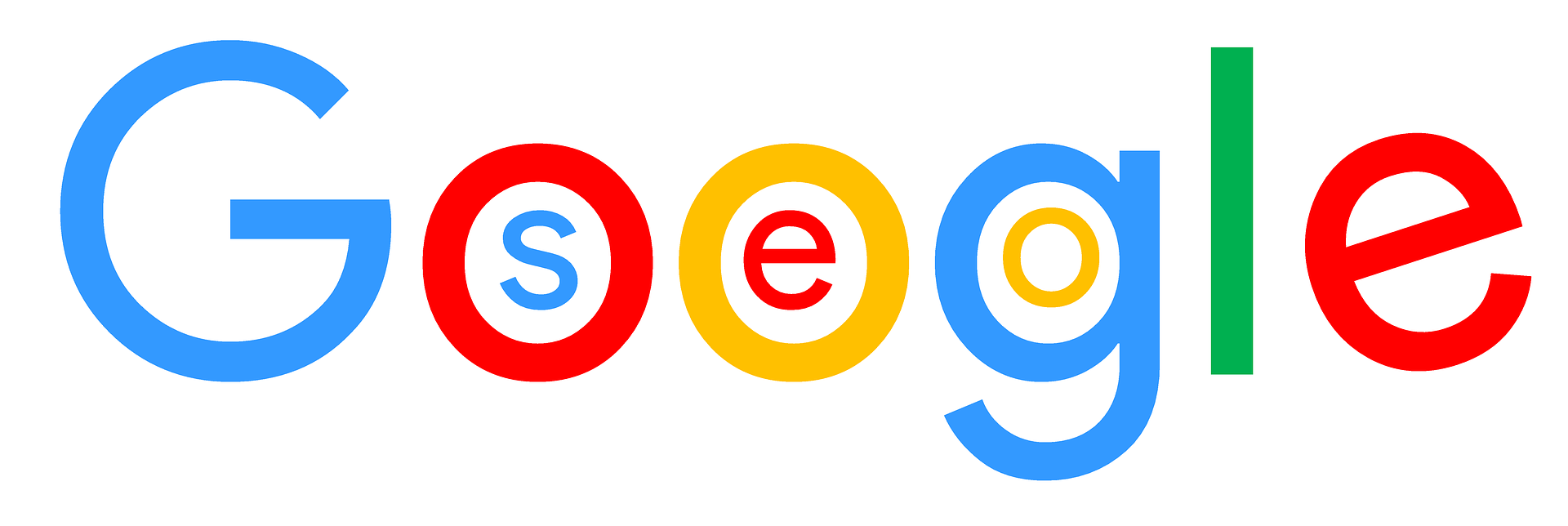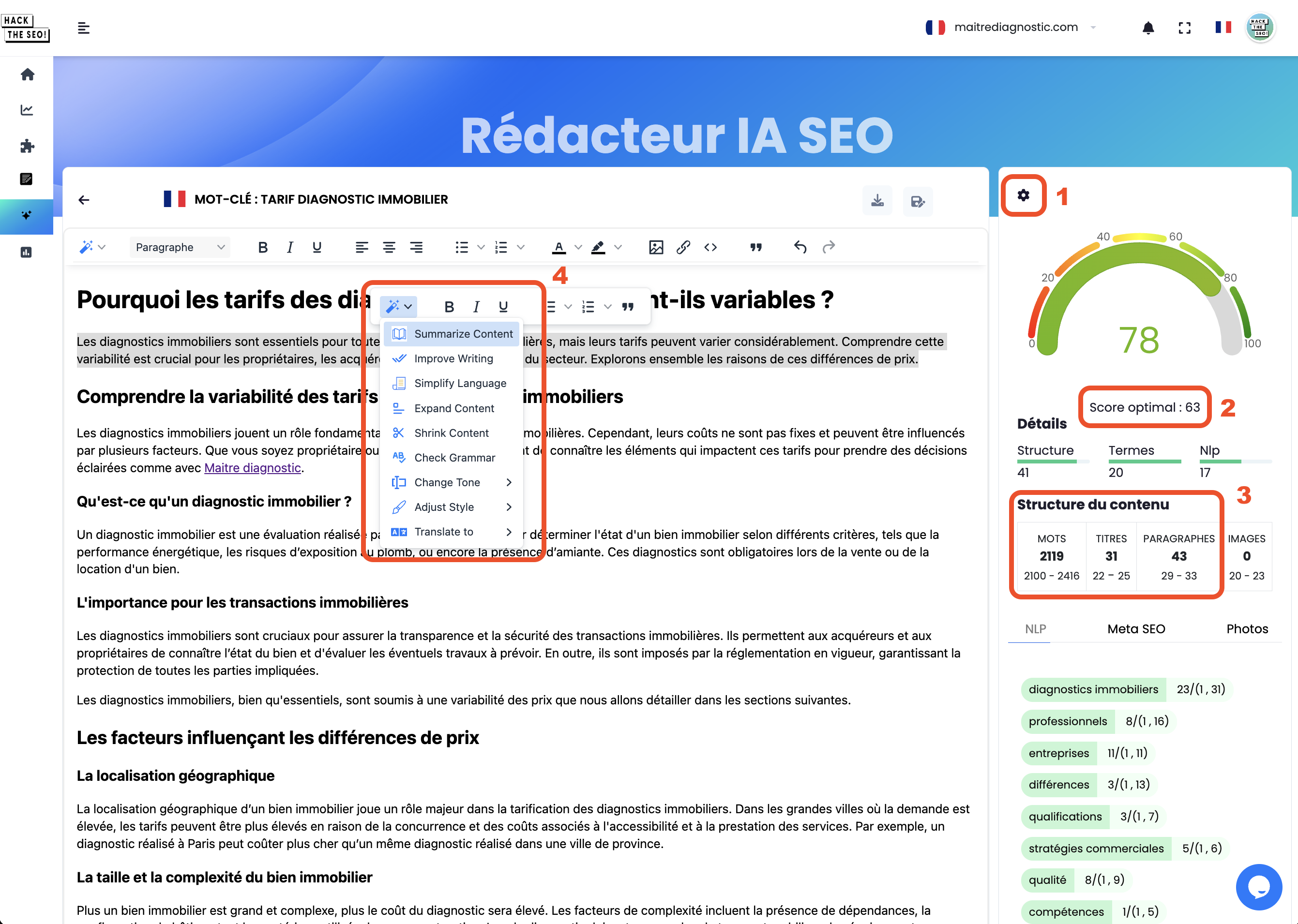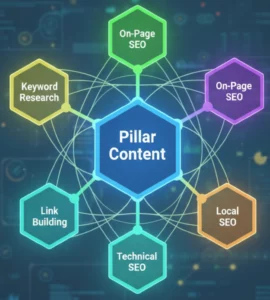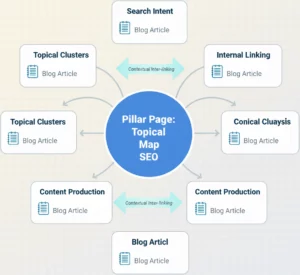
Artificial intelligence (AI) is gradually infiltrating all areas, particularly content creation. With the emergence of AI Writers, it is essential to recognize their capabilities and limitations. This leads us to a fundamental question: can human writers be entirely replaced by these sophisticated software programs?
Table of Contents
ToggleContext of Artificial Intelligence in Writing
Technological progress has led to the development of AI-based tools such as ChatGPT, HyperWrite, and WriteSonic, transforming the writing landscape. These tools rely on powerful neural networks to generate quality content. This digital revolution raises legitimate questions about the creativity and authenticity of the content produced.

The Question of AI Replacing Human Writers
The debate is heated around the idea that these generative models can not only assist but also replace writers. The search engine optimization (SEO) field is particularly concerned, as the quality of articles generated by these artificial intelligences directly impacts search engine results like Google.

What is an AI Writer?
Definition and Role of AI Writer in Content Creation
An AI Writer is software that uses natural language models to produce content. These systems have been trained on millions, if not billions, of textual examples to learn how to write articles, descriptions, and even social media content. These software programs can be immense assets for marketing teams, alleviating the burden of content creation.

Advantages of Using an AI Writer
The advantages of AI Writers lie in their ability to quickly produce content on a multitude of topics, particularly revolutionizing the marketing field. When used correctly, they can improve web content production while optimizing the time and resources of writers.
Main Limitations of AI Writers
Contextual Understanding and Interpretation of Linguistic Nuances
Despite their advances, AI Writers still struggle to understand context and interpret linguistic nuances. Natural Language Processing (NLP) still has a long way to go before matching human understanding and expressiveness. This limitation can lead to generic content lacking nuance and personalization.
Dependence on Data Sets and Issues with Quality and Biases
The quality of content generated by an AI Writer depends heavily on the data it was trained on. If this data contains biases or errors, the produced content will suffer. This can lead to inaccurate or problematic content, negatively impacting SEO.
Technical Constraints and Necessary Updates
Technical constraints are also significant limitations. AI Writers require regular updates to reflect changes in language usage and current trends. The costs associated with these updates can be substantial, a factor to consider for businesses.
Current Challenges of AI Writers
Maintaining Creativity and Originality in Writing
Creativity and originality remain major challenges for AI Redactors. They can produce functional content, but often lack the creative essence that characterizes human writing. This can affect how a product is perceived by the public and, consequently, the success of the marketing campaign.
Complexity of Training and Implementing AI Tools
Training and implementing these tools require particular expertise. Recent AI models, such as Long Shot, demand a deep understanding of NLP to be effectively customized. The complexity of these processes can be a barrier for non-specialized teams.
Here is a preview of the model Hack The Seo, one of the best AI solutions based on NLP.

Financial and Ethical Considerations of Using AI
Investing in AI Redactors can be significant, especially for small businesses. Additionally, using AI raises ethical questions about privacy and intellectual property. Concerns about content copying and misuse persist and must be addressed.
Case Studies and Concrete Examples
Using AI Writers in Content Marketing
AI Writers have become key players in content marketing, enabling faster and larger-scale production. Studies show that some of the best AI software, like Writesonic, can significantly improve SEO.

Examples of Successful Applications and Encountered Limitations
There are several cases where AI Writers have played a decisive role in the success of a marketing campaign. However, even in these cases, limitations in creativity, personalization, and understanding cultural nuances are evident.
Experts’ Opinions and Users’ Testimonials
AI Writer Performance: Testimonials and Case Studies
User testimonials show that AI Writers can be extremely effective for certain tasks. However, experts recommend using them as a complement to human writing to ensure quality and authenticity.
Experts’ Advice for Optimal Use of AI Writers
Experts agree that it is crucial to oversee and optimize AI-generated content. They advise maintaining a balanced content strategy, blending human intelligence with AI Writers’ capabilities.
FAQ on AI Writers’ Limitations
This section aims to answer the most frequently asked questions about AI Writers’ limitations. We will address the possibility of replacing human writers, managing privacy and data security, and best practices for using them.

Can AI Writers Ever Replace Humans?
The question of whether AI Writers can ever replace humans is a debate that divides experts and industry observers. Some believe that the rise of artificial intelligence and natural language processing technologies could one day allow AI Writers to produce content as effectively and convincingly as humans.
However, others point out that artificial intelligence still has significant limitations regarding creativity, emotion, and judgment, qualities often considered characteristic of human writing.
It is undeniable that AI assisted Writers have already made impressive strides in automated content generation, especially in areas such as financial reporting, product or service descriptions, or even news article writing.
However, these advances do not necessarily mean that AI Writers are ready to completely replace humans in all aspects of writing and communication. Ultimately, whether AI Writers can or cannot replace humans will likely depend on how the technology continues to evolve and how we as a society choose to use it.
It is possible that AI Writers will become indispensable tools for writing professionals, helping them produce content more quickly and efficiently.
It is also possible that they will continue to be primarily used as a complement to human skills, offering suggestions and improvements to refine and enhance the work of writers. Whatever the outcome, it is clear that AI Writers will continue to spark debates and reflections on the future of writing and creativity in an increasingly technology-dominated world.

What is the Future of AI Writers?
The future of AI Writers is promising and constantly evolving. These AI-based text generation tools continue to improve thanks to technological advancements and machine learning. More and more companies and individuals are turning to these virtual assistants to create quality content in record time.
AI Writers can be used in many fields, such as web content writing, report and analysis creation, blog post writing, and even script production for movies and TV shows. Their ability to generate text fluidly and naturally makes them valuable tools for marketing professionals, writers, and content creators in general.
Integrating artificial intelligence into the writing process offers many advantages, such as the ability to produce content on a large scale, improve productivity, and reduce costs. However, some are concerned about the potential impact of AI Writers on writing-related jobs and the possibility that these tools could completely replace human writers.
Despite these concerns, it is clear that AI Redactors are here to stay and will continue to play an important role in the writing industry. It is therefore essential for professionals in the field to adapt to these new technologies and take advantage of their benefits to remain competitive in the market.
Ultimately, the future of AI assisted Writers will depend on how they are used and integrated into our writing practices.

In summary, AI Redactors present interesting opportunities but also significant challenges. Future progress will need to address these challenges for AI to harmoniously integrate into the writing field, complementing humans rather than substituting them.

Eric Ibanez
Co-fondateur de Hack The SEO
Eric Ibanez a créé Hack The SEO et accompagne des stratégies SEO orientées croissance. Il est aussi co-auteur du livre SEO pour booster sa croissance, publié chez Dunod.
Suggested Articles




